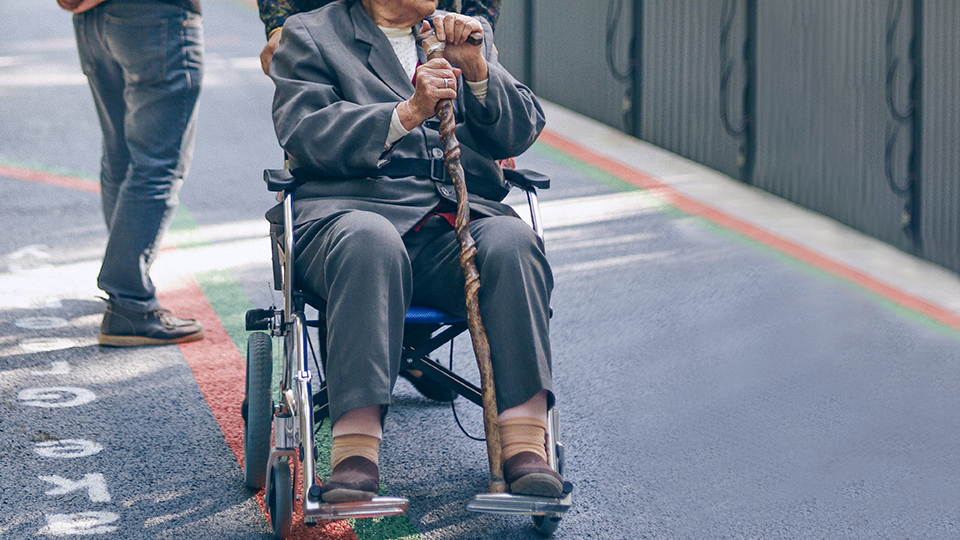NUS study finds high prevalence of fear of falling and association of its resultant activity restriction with frailty and sarcopenia in Singapore elderly
Published: 01 Oct 2020

The fear of falling is a common problem in countries with fast ageing populations. Certain activities such as bending down, walking on slippery or uneven flooring may incite the fear of falling among the elderly.
In a study conducted by the NUS Yong Loo Lin of Singapore (NUS Medicine), researchers found a high prevalence of a fear of falling among the Singapore elderly and this has significant physical, mental and psychosocial consequences (due to fear-related activity restrictions) that could predict future functional disability, restrict mobility and is associated with falls, social isolation, depression, anxiety and a poor quality of life.
The study found that 2 in 3 older adults (aged 60 and above) have a fear of falling, and among them, more than 1 in 3 restrict their activities as a result. Some examples of fear-related activity restrictions include avoiding the following activities: attempting stairs, shopping, taking public transport, outdoor walking or visiting friends.
There is also a higher prevalence of a fear of falling in females than males. However, notably, among those who were afraid of falling, only 1 in 3 females restricted their activities as compared to 1 in 2 males.
This cross-sectional observational study evaluated 463 community-dwelling older persons in Singapore, aged 60 and above. Led by Associate Professor Reshma Merchant from the NUS Medicine Department of Medicine and Head & Senior Consultant of the Division of Geriatric Medicine, National University Hospital, the study also found significant association of a fear of falling and/or activity restrictions with frailty, sarcopenia, cognitive impairment, depression and social isolation in Singapore elderly.
Assoc Prof Merchant said, “Ageing is often associated with physiological and psychosocial changes, and increased vulnerability to social isolation and loneliness. In this study, we found that frailty and sarcopenia (age-related muscle loss) are associated with the increased fear of falling and activity restrictions, along a high incidence of depression affecting quality of life.”
“Frailty and sarcopenia are both preventable and reversible and with the right interventions such as exercise, we can stop or delay this decline in muscle strength or mass that often comes with ageing” – Assoc Prof Reshma Merchant
The high prevalence of a fear of falling and its resultant activity restrictions on the elderly in Singapore signal the need to include and ramp up screening for frailty, sarcopenia and a fear of falling among the elderly. With the findings of this study, possible preventive measures such as exercise, resistance exercise, a high-protein diet and cognitive-behavioural and multifaceted interventions could also be included in the daily routines of the elderly to avert the risk of sarcopenia and frailty.
This study was first published in the Journal of the American Geriatrics Society on 17 August 2020: https://doi.org/10.1111/jgs.16719.
|
NUHS Healthy Longevity Translational Research Programme (TRP)
As part of the School’s re-organisation of its basic science departments to better enable education and research excellence, the Healthy Longevity Translational Research Programme is established as one of the priority areas of research at NUS Medicine.
The Healthy Longevity programme aims to bring together scientists and clinicians to investigate the different aspects of ageing. Through a more comprehensive understanding, the programme aims to advance our understanding on the biology of ageing and how this knowledge could be harnessed to delay the ageing processes within muscles, blood vessels and the brain.
By working together, the programme hopes to bring advances in biomarker, imaging and more to add healthy years to life and help keep Singaporeans more active and engaged.
|
News Coverage

